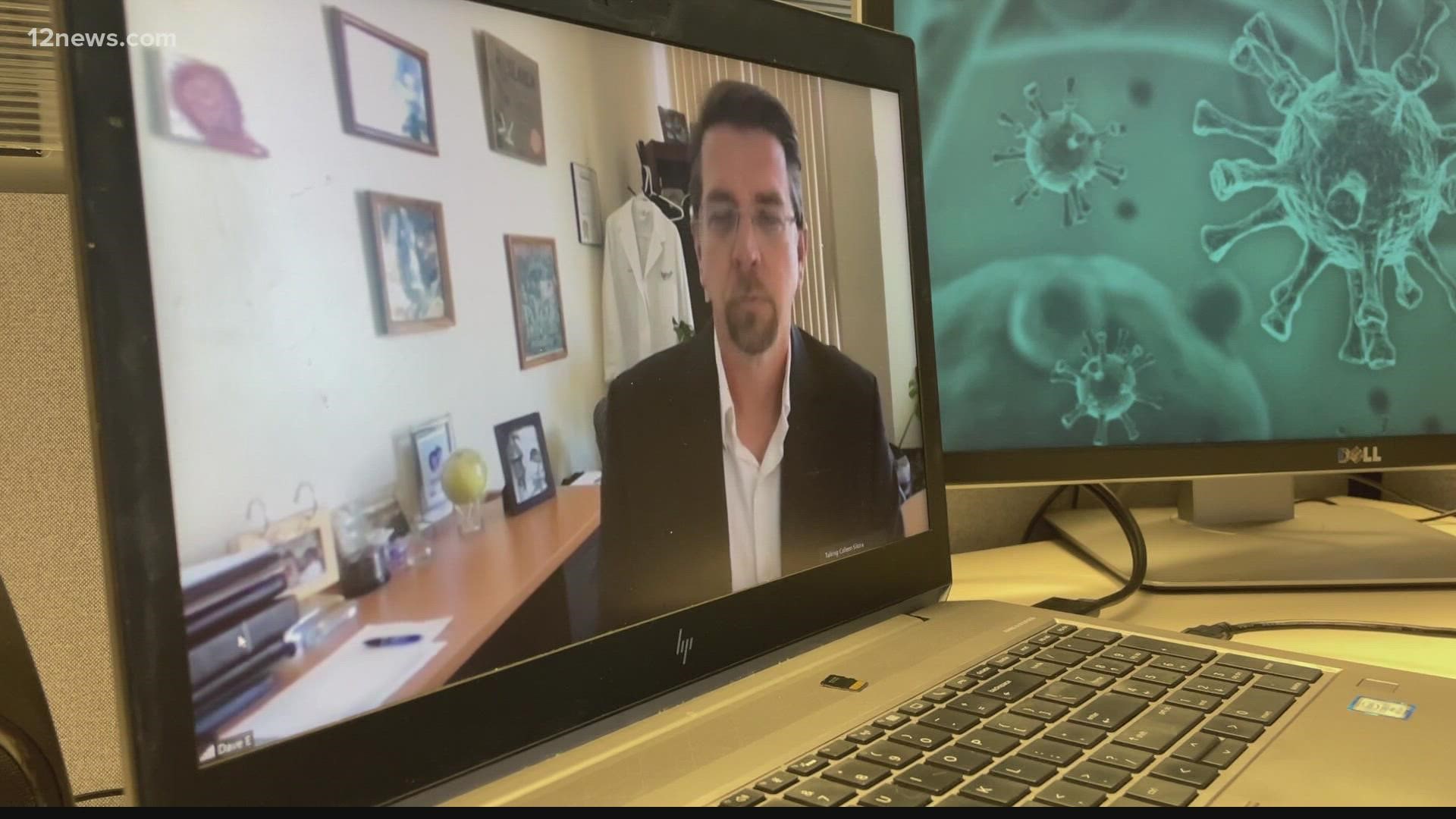PHOENIX — The World Health Organization has identified a new COVID-19 variant of concern Friday.
The B.1.1.529 variant has been given the name Omicron by the WHO. It's believed to be driving an increase in coronavirus cases in South Africa.
The classification prompted President Joe Biden to implement travel restrictions from South Africa and seven other countries starting on Monday.
"We don't want to be overly concerned, we still have to learn a lot about this particular variant," Dr. David Engelthaler, director of the infectious disease wing at TGen said.
Several mutations
The WHO said Omicron has developed, "a large number of mutations, some of which are concerning."
Engelthaler said those couple dozen mutations, or changes, are in the spike protein part of the virus.
"Usually when that happens, that gives the virus maybe a better chance of finding just the right combination that's going to allow it to succeed and transmit better," Engelthaler said.
Engelthaler said other variants like Delta, the UK variant and the previous variant out of South Africa also picked up several mutations too.
Engelthaler said it's not always known why that happens. But, he said, the virus may have replicated and changed over and over while in a person who was infected for a long time.
"So finally when they maybe exposed another person to the virus, it's changed enough and picked up enough mutations that it starts to act a little bit differently," Engelthaler said. "That's probably what's happened here."
Appears to be spreading faster
Engelthaler said it does appear as though Omicron is spreading faster than the already fast-spreading Delta variant.
"We don't know, though, is that going to really supplant Delta everywhere in the world," Engelthaler said.
In Arizona, TGen's dashboard shows the Delta variant has been found in 99% of the COVID-19 genomes sequenced in Arizona.
Engelthaler said the Omicron variant has yet to be found in the state.
"There's a good chance we'll see it at some point," Engelthaler said. "But we don't know: Is it really going to change the pandemic for us?"
Potential to evade antibodies
The WHO said the first known and confirmed COVID-19 case with the Omicron variant was found on Nov. 9.
While more than 4.1 million Arizonans have been fully vaccinated against COVID-19 to date, Engelthaler said how effective the current vaccines are, could be a concern with Omicron.
"It does seem like this particular variant has some mutations that do allow it to escape some antibodies," Engelthaler said. "That might just mean that we may have to get a booster that is associated specifically with this variant."
Moderna, one maker of a COVID-19 vaccine, said in a statement they're testing a higher dose of their vaccine and will also be advancing a booster specifically for Omicron.
Johnson and Johnson said in a statement to 12 News they are testing their COVID vaccine against the Omicron variant.
Pfizer said they are testing their vaccine against the variant as well.
Engelthaler said with the new variant emerging, people who haven't gotten vaccinated should get vaccinated, adding those that are due for a booster should get their booster shot too.
"That'll keep your overall immune system charged up and ready to go in case we do see this variant showing up on our doorstep," Engelthaler said.
COVID-19 News and Updates
Subscribe to the 12 News YouTube channel to receive notifications on the latest videos about the latest information on the coronavirus.

